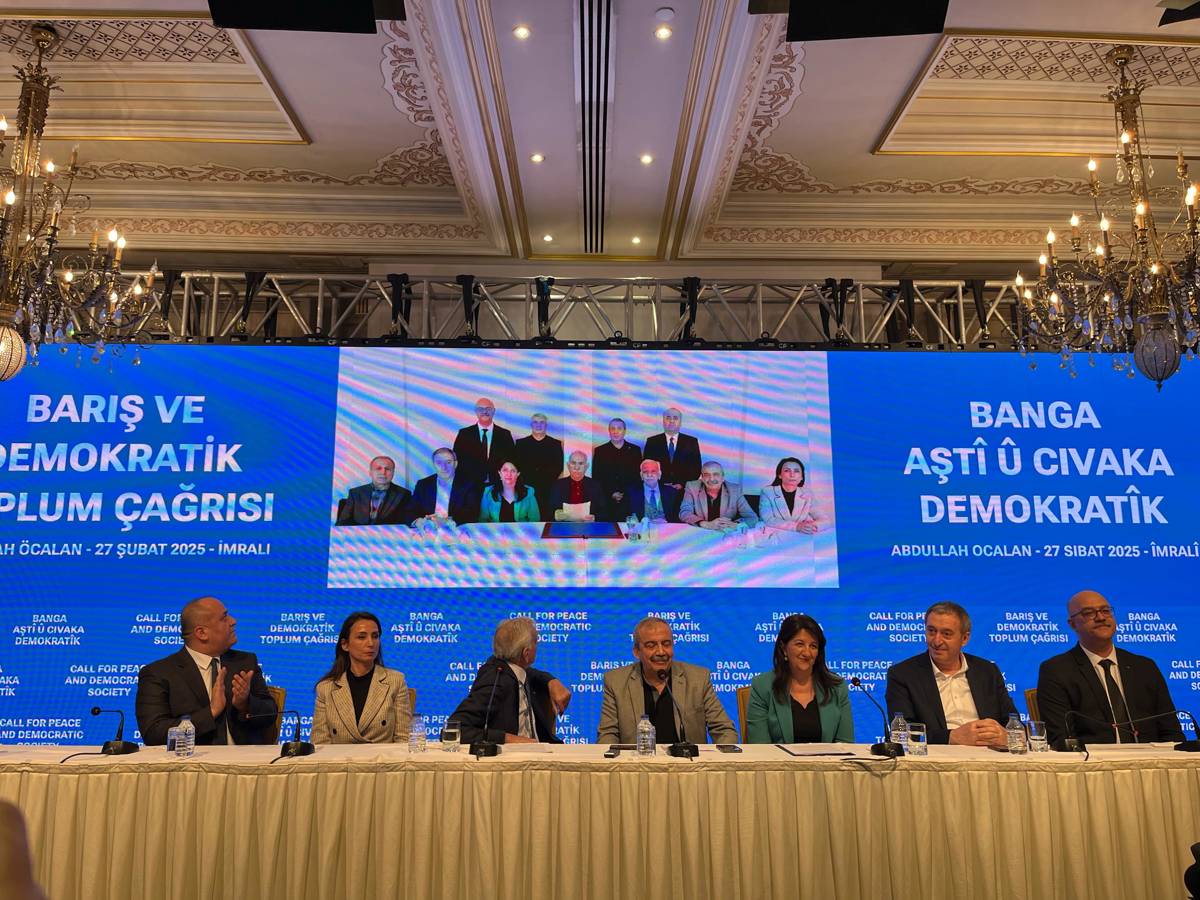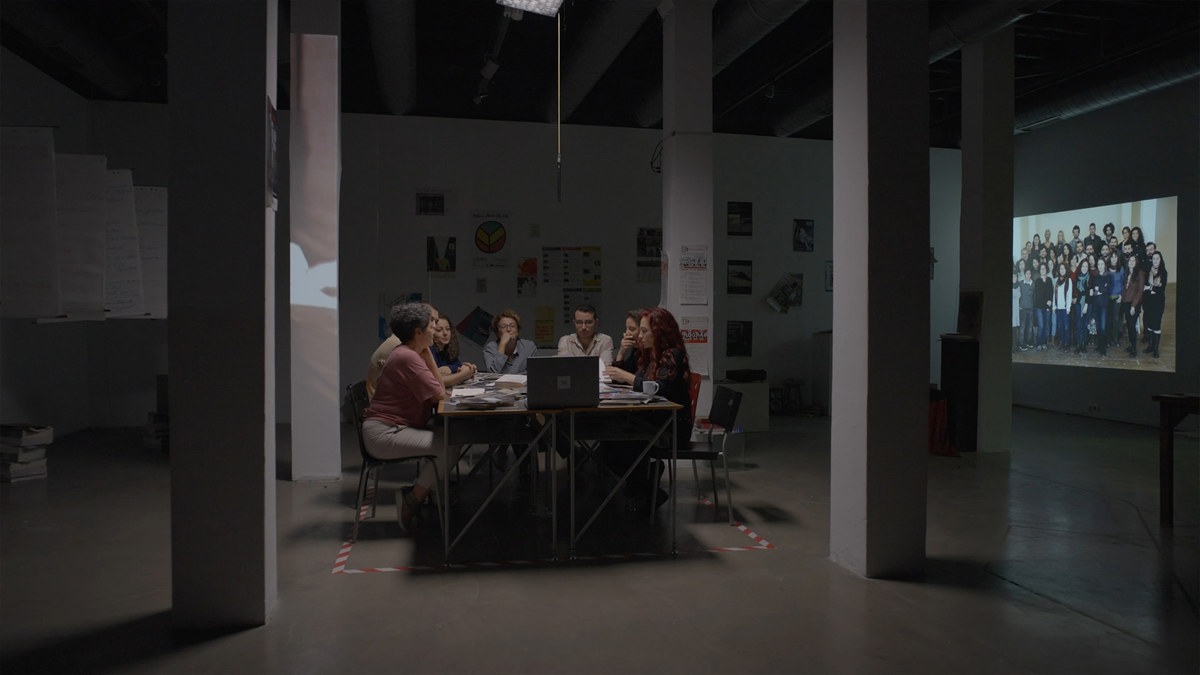Documentary celebrates 20 years of Kavala’s Anadolu Kültür

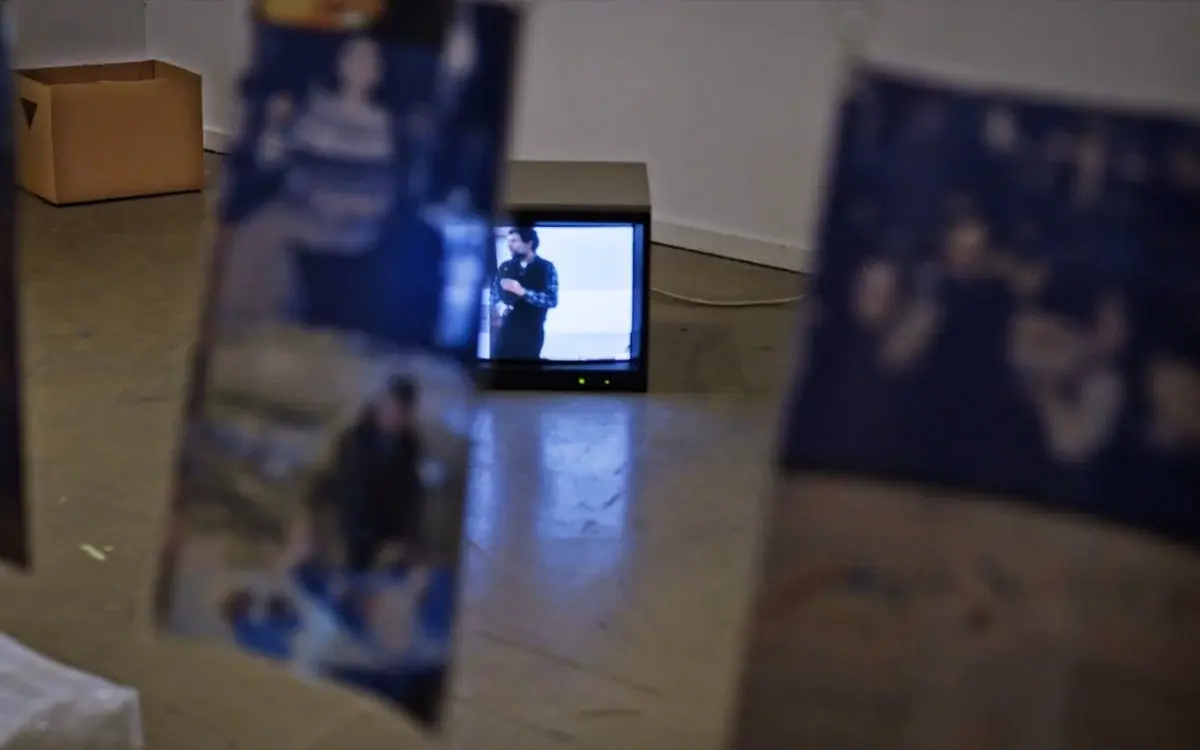
The documentary “Feeding River: 20 Years of Anadolu Kültür” was screened yesterday (June 11) as part of Documentarist 17th Istanbul Documentary Days.
The screening, organized at the Pera Museum in Istanbul, attracted a great deal of interest. After the documentary, the film crew together with the former and current employees of Anadolu Kültür answered questions from the audience.
The title of the documentary, directed by Mert Kaya, comes from a statement made by academic Umut Tümay Arslan in the documentary. Arslan says that Anadolu Kültür often strengthens memory, which he describes as a river, by “carrying water” through its works on remembering and coming to terms with the past.
In the film, former and current employees of Anadolu Kültür, including Asena Günal, Tamar Nalcı, Aslı Çetinkaya, Aysu Arıcan, Ekin Su Birinci, Latife Uluçınar and Övgü Gökçe, talk about their work, their projects, and occasionally share their memories of Osman Kavala, the founder of Anadolu Kültür, who has been in prison for 2,416 days, serving a life sentence for “attempting to overthrow the government”.
Diyarbakır Arts Center
As the documentary explains, one of the most important projects of Anadolu Kültür and Osman Kavala is the Diyarbakır Arts Center (DSM).
Founded in 2002, the same year as its affiliate Anadolu Kültür, DSM set out with the aim of contributing to the revitalization of Diyarbakır's culture and arts scene, creating a meeting place where artists in the city can develop and present their own projects, and art lovers can access valuable culture and arts events.
In the documentary, images show Osman Kavala at the opening of the center in Diyarbakır and Selahattin Demirtaş, former Co-Chair of the Peoples' Democratic Party (HDP), who was sentenced to 42 years in prison on the Kobani Trial.
A striking aspect of the documentary is the way Anadolu Kültür workers collaborate in a collective and democratic manner, thanks to the system established by Kavala. This approach involves extensive discussions, often lasting hours or even days, during which original ideas are thoroughly debated and fully supported by Kavala.
One of the best examples of Kavala's commitment to enriching the field of culture and arts and supporting creative ideas is the story of “Dengbêj Gazin and Ashik Leyli”, as told by Tamar Nalcı in the documentary, which is part of the “Women Ashiks and Dengbêjs” project realized in partnership with Anadolu Kültür and Norevan from Armenia. Dengbêj Gazin, who died in 2018, told Kavala about her wish to appear on Yerevan Radio during a meeting. Kavala did his best to make Gazin's dream come true, resulingt is the album “From Van to Yerevan”.
Who are the Dengbêjs
Originating in the Kurdistan Region of Turkey, Iraq, and Syria, dengbêjs are known for their musical performances, which often feature poetic lyrics and storytelling. Their music is often improvised and sung in indifferent Kurdish dialects telling stories of love, feuds and social justice. Dengbêjs play a significant role in Kurdish cultural heritage, serving as both entertainers and cultural ambassadors.
Gomidas at 150
Anadolu Kültür, which set out to establish local, regional and international collaborations through culture and arts, has been running activities related to Armenia in order to confront and come to terms with suppressed elements of the past in the collective memory. The documentary includes footage of the “The Sound of Bright Morning | Gomidas 150 Years Old Concert” organized on the 150th anniversary of the birth of Armenian composer and musicologist Gomidas. Held in 2019 at the Cemal Reşit Rey Concert Hall in Istanbul and featuring recordings of a concert by Armenian oud composer Ara Dinkjian and Kurdish artist Aynur Doğan, the film says it was Kavala's idea to commemorate Gomidas in this way.
Another important pillar of the documentary is Depo Istanbul, which opened its first exhibition in 2009. Depo, a culture and art center and discussion space located in the city center of Istanbul, is the heart of works that nowhere else can find a space to be exhibited, works that are censored, works that are rejected due to their political content, and artists who are not supported by the state. It was Kavala's idea to revamp the space, which had previously served as a tobacco warehouse until the 1950s, into a unique venue. Located in Tophane, a neighborhood often considered 'challenging', Kavala's vision aimed to transform this building into an exhibition space.
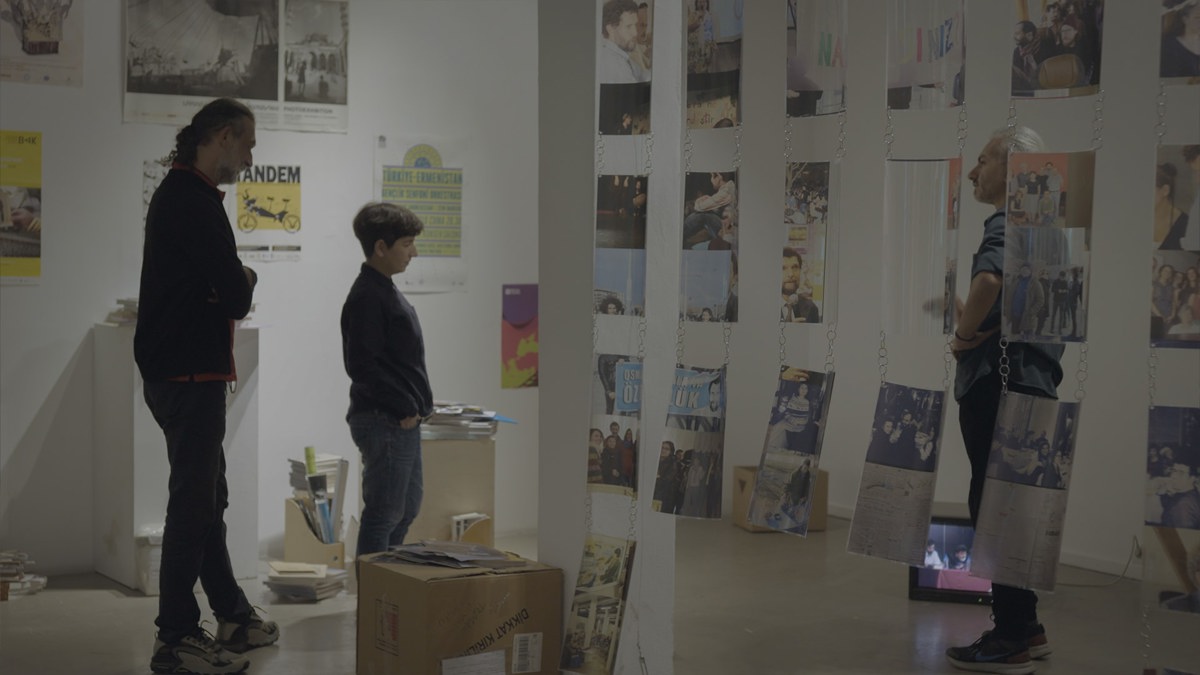
Kavala's letter
The documentary ends with a letter sent by Kavala from the Silivri (Marmara) Prison to Asena Günal, Director of Anadolu Kültür's Istanbul Office. The contributions to the organization and civil society of Mine Özerden, a former member of Anadolu Kültür's Board of Directors, and Çiğdem Mater, one of its advisors, who has been held in Bakırköy Women's Prison since April 25, 2022, as part of the Gezi Trial, are also mentioned repeatedly. Mater, who has been supporting Anadolu Kültür as a consultant since 2009, was also the coordinator of the Armenia-Turkey Cinema Platform.
On April 25, 2022, Istanbul 30th High Criminal Court sentenced businessman and rights defender Osman Kavala to life in prison for “attempting to overthrow the government” and Mücella Yapıcı, Çiğdem Mater, Hakan Altınay, Mine Özerden, Can Atalay, Tayfun Kahraman and Yiğit Ali Ekmekçi to 18 years in prison for aiding and abetting the crime. Only one member judge objected to the decision.
On September 28, 2023, the 3rd Criminal Chamber of the Court of Cassation upheld Kavala's life sentence and the 18-year sentences of Atalay, Mater, Kahraman and Özerden, while overturning the sentences of Ekmekçi, Yapıcı and Altınay and releasing them.
(TY/DT)
Q&A WITH SIRRI SÜREYYA ÖNDER ON KURDISH PEACE TALKS
'We come from a long past, and we are thinking about a long future'
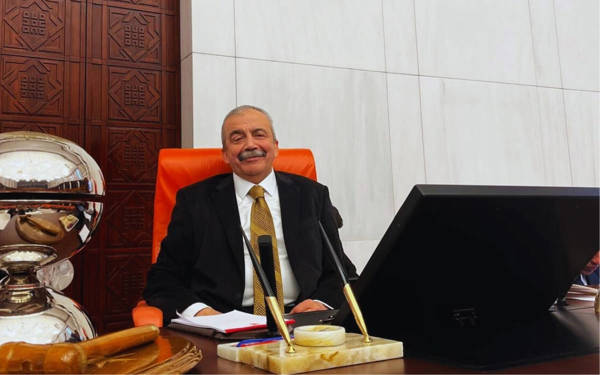
İstanbul Film Festival drops queer films section from 2025 lineup
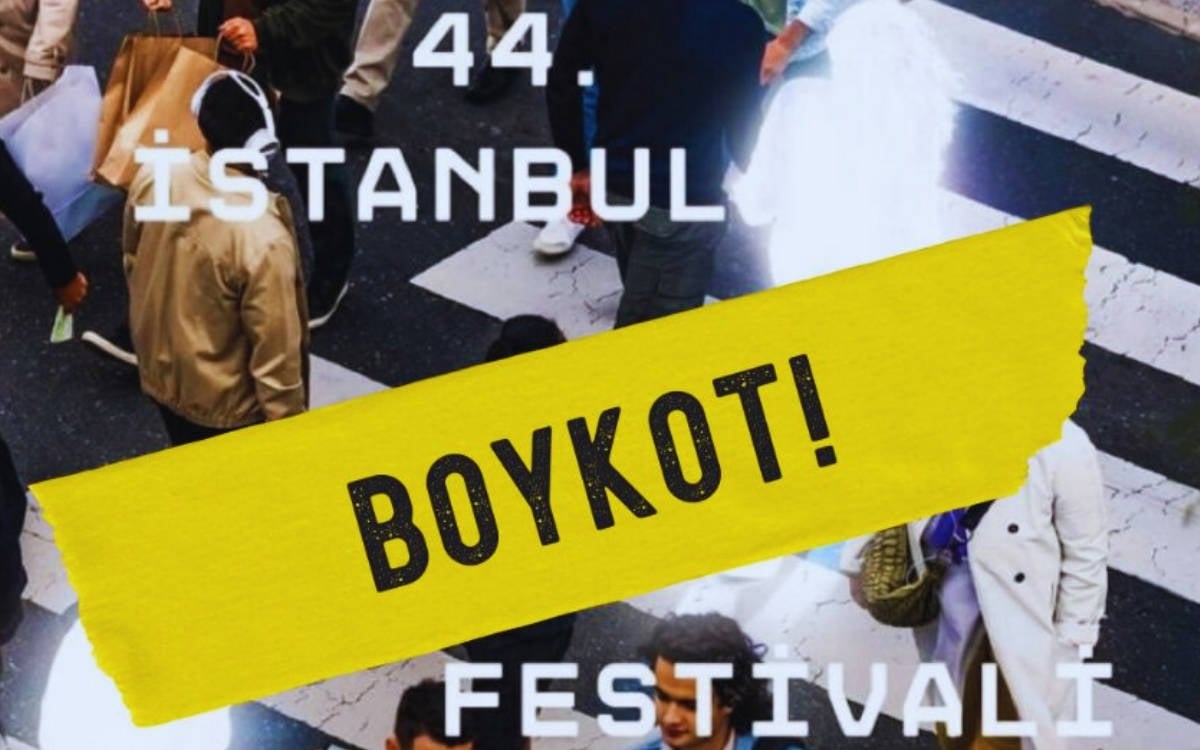
İmamoğlu detention: 'Election alliance with Kurds is not a terror crime,' says MP
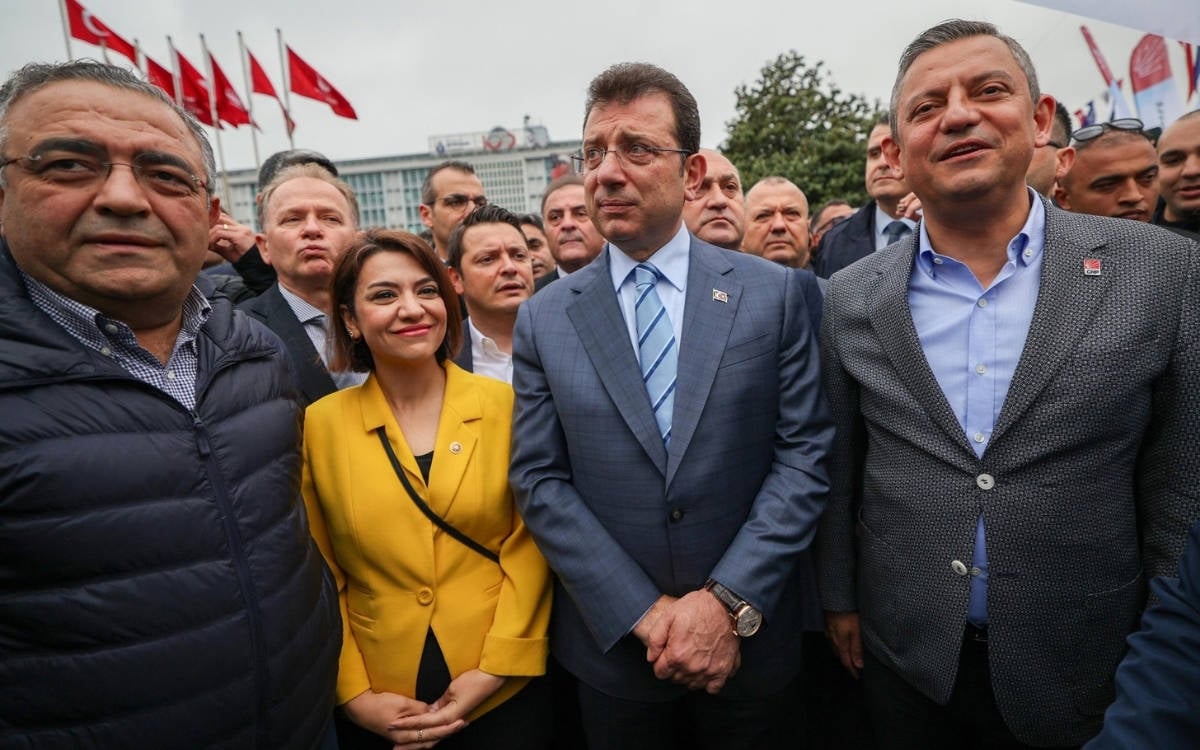
Öcalan's message sparks both hope and skepticism
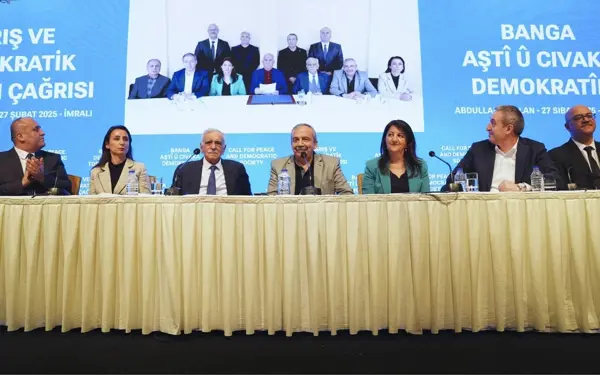
PKK leader Öcalan calls on group to lay down arms in historic statement
